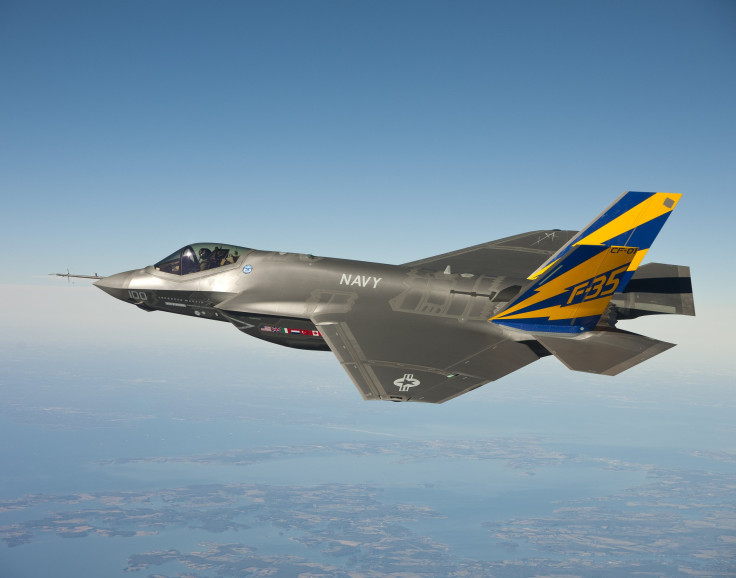How Much Do F-35s Cost? US, Other Countries Ground Fighter Jets

Following the crash of F-35B Lightning II in Beaufort, South Carolina, on Sept. 28, multiple nations, including the United States, grounded their fleets of F-35 fighter jets.
“The U.S. Services and international partners have temporarily suspended F-35 flight operations while the enterprise conducts a fleet-wide inspection of a fuel tube within the engine on all F-35 aircraft,” the F-35 Joint Program Office announced in a statement Thursday morning.
The office made it clear the fighter jets will be out of military service only as long as it takes to fix them.
"If suspect fuel tubes are installed, the part will be removed and replaced. If known good fuel tubes are already installed, then those aircraft will be returned to flight status. Inspections are expected to be completed within the next 24 to 48 hours," the statement added.
The U.S. military has bought 245 F-35 aircraft from Lockheed Martin so far and plans to buy a total of 2,456 F-35s, at an estimated cost of $325 billion in the near future. Currently, the Air Force is in possession of 156 units of the fighter jet, the Marine Corps has 61 and the Navy has 28, Military Times reported.
According to the Government Accountability Office, the entire F-35 program is projected to cost about $1 trillion, including development, production, storage and maintenance. The unit price for an F-35A stands at $94.3 million, including aircraft, engine and fees.
The acquisition cost of the F-35 program was $406.5 billion. When the contract agreement was reached in January 2017, President Donald Trump complained about the soaring price of the jets, boasting at the same time about his negotiation skills.
“They were having a lot of difficulty. There was no movement. And I was able to get $600 million approximately off those planes. So I think that was a great achievement," Trump told reporters at the time, CNBC reported.
As an increasing number of challenges emerged regarding the F-35s, including faulty ejection seats, software delays and significant helmet-display issues, Navy Vice Admiral Mat Winter, program executive officer for the Pentagon's F-35 joint program office, emphasized on the need to “know what it truly costs to produce the aircraft.”
“The number of quality escapes and what we call production line defects needs to get better,” he told reporters in February.
Soon after the U.S. announced the temporary suspension of what has been touted as the largest and most expensive weapons program of its type in the world Thursday, the United Kingdom followed suit. Currently, the U.K. possesses 16 F-35s, which arrived in the country in June as part of a £9.1 billion ($12 billion) program to buy a set of 138 planes, the rest of which are due to arrive.
“Safety is our paramount concern, therefore the UK has decided to pause some F-35 flying as a precautionary measure while we consider the findings of an ongoing inquiry,” a spokesman for U.K.’s Ministry of Defence said. Only one of the 16 F-35s has been cleared for flying so far, the Guardian reported.
The Israel Defense Forces put out a similar statement Thursday:
An investigation into the F-35B crash in South Carolina revealed the cause of the crash to be a technical malfunction in the engine’s fuel tube. The Israeli Air Force halted all F-35I flights until all aircraft are tested.
— Israel Defense Forces (@IDF) October 11, 2018
Australia was next in line to ground their fleet of nine F-35s. Australian Defence Force (ADF) said: “The F-35 fleet has been instructed to conduct safety inspections across all delivered engines. Australian F-35 aircraft currently based in the U.S. will return to flying operations once safety inspections are complete.”
Despite the crash involving F-35B, ADF said they are committed to buying 72 units of the fighter jet at $115.7 million as per plan, ABC reported.
Italy, one of the countries which bought this range of fighter jets, said they will not ground their F-35s, claiming that they had already completed the required assessment of the jets.
Other countries like the Netherlands, Turkey, Norway, Japan, and South Korea, which have purchased F-35s in the past, are yet to confirm their next plan of action regarding the jets.
© Copyright IBTimes 2025. All rights reserved.





















